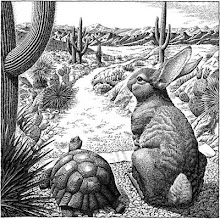A brilliant sun, shining through a hazy morning sky lights the tossing leaves that, by natural decree, don the translucent vibrancy of life. The wind is cool, but hardly cold. A vivacity of strength and newly discovered being seems to emanate from nature's every move. Through the narrow grid of the old french doors that let in the sunlight I see the world beyond. A poorly kept hedge, a gravel path, and an old country road that disappears into steep mountain trails. Beyond, the great sweeping course of the valley stretches towards the horizon, dotted with villages, towns, cities, and, just beyond the edge of sight, a glimmer reflected from the sea.
As night approaches, lights, like a luminous forest spring up among the shadows till, between the dark arms of the surrounding hills an illuminating river runs from some hidden source to the edge of the Mediterranean. There, the void of thoughtless infinity begins. On land, the last holdout of day stands, against all odds, to face the force of all-embracing night. Distinct, a million pin-point lights combine to fight reality. Then, as if subdued by an unseen hand, the lights go out. One by one, thousand by thousand, a chilling wind lays to rest all human breath. Alone, travelers pour along the roadways in a restless consciousness that, albeit unwillingly, remains to defy the call of mother nature. Passing -- ever passing -- soon they are gone. The night is cold. Above all else, the cynic's question resonates throughout the emptiness of time: "what is truth?"
Subscribe to:
Post Comments (Atom)

I love prose that carries itself like a good poem. I feel like there is some context I am missing.
ReplyDeleteMy roommate and I had an argument about cynicism the other day. It is the ultimate in circular, impish philosophy.
Thanks for posting this up. Reading it makes me feel the way a car might feel, if metal had nerve endings, getting a fresh oil change after a road-trip.
You do cynicism great credit by counting it among the philosophies of the world. That boorish monstrosity, scorning both love and wisdom, might quibble with the combined association.
ReplyDeleteThe lack of context is a given. I was trying to ease my mind from the strenuous process of memorizing the names of authors and works that I have not read, by attempting to simulate their perspective.
If you care for immediate context, take an evening hike in the hills of Southern France next time you get the chance. :)
I like it!
ReplyDeleteI'm fond of Naturalism (as an exercise, not a belief system). It embodies "the stones will cry out". Case in point: it inspired you to write a beautiful piece. Theologically empty, but if it weren't for that pesky existence of God (and Life actually having meaning), it would be correct to be so depressed.
Your redacted author's note said you were impersonating, but I think you couldn't help giving away the joke a few times: "by natural decree", "against all odds", "albeit unwillingly", etc. Those were subtle, but not subtle enough for spot-on satirical impersonation.
"Theologically empty" by design, I mean.
ReplyDeleteHehe, I never intend to adopt a career that involves professional deception. I'd be fired. :D
ReplyDeleteJustin, the comparison to a literary stone (although unintentional?) is timely. After six months of no activity, I'd have to say that the shoe fits.
Oh it's certainly not an intentional comparison. I mean that deifying nature makes sense when people have no explicit knowledge of God. They see Him in nature, aren't able to put a name on it, so the nature itself is treated as supernatural. Which is basically how I read Luke 19:40 (and to some extent Romans 2:14-15).
ReplyDeleteGood point Justin. I think I may have failed to make my point sufficiently clear. By Naturalism, I refer to the cynical movement of the mid-1800s, which is not so much a glorification of nature as much as the acceptance of man's inability to rise above it.
ReplyDeleteAs I understand it, Naturalism, in its most pure sense, focusses not on the "supernatural" in nature but rather on the raw, barbaric nature that transcends the most divine elements of thought, love, and loyalty.
The Naturalist endorses nothing--least of all nature. He remains content to observe what he knows cannot be changed. My allusions to nature were of a strictly allegorical quality, using the imagery of "light" "dark", and "vast infinity", to communicate the crushing sense of inescapability that characterizes the Naturalistic movement.
Case and point:
"A man said to the universe:
'Sir I exist!'
'However,' replied the universe,
'The fact has not created in me
A sense of obligation.'" -- Steven Crane